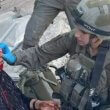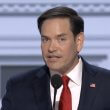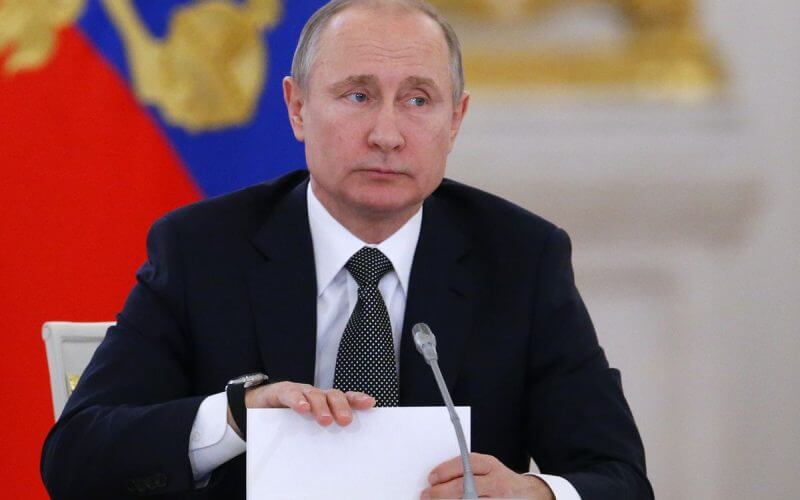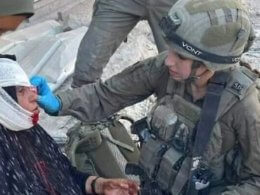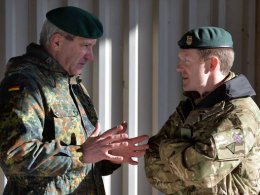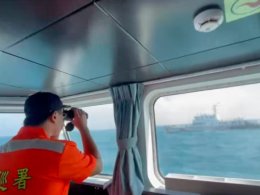Ever since Russian President Vladimir Putin launched an invasion into Ukraine, individuals trying to keep up with the conflict day-to-day are also trying to understand the history of one of Russia's many brutal dictators and his reasoning behind the invasion. The former KGB foreign intelligence officer has come a long way in his life, climbing his way up the ranks of the Kremlin to its eventual ruler. With his refusal to pull back his troops from Ukraine and the incredible amounts of international backlash generated, Putin’s actions have increased his infamy like never in his entire career.
In October of 1952, Vladimir Vladimirovich, son of Vladimir Spiridonovich Putin, a Soviet Navy conscript, and Maria Ivanovna Putin, a factory worker, was born in the then-Soviet city of Leningrad, now called Saint Petersburg. During the early years of World War II, Vladimir Spiridonovich served in the Soviet Union’s demolitions battalion of The People’s Commissariat for Internal Affairs (NKVD), which carried out deportations, arrests, and executions of individuals against the Soviet regime. As the only surviving son, Putin, like many other Russian children after World War II, was to be indoctrinated into serving the USSR.
During the 1970s, Putin studied law at Leningrad State University (LGU), now known as Saint Petersburg State University, and graduated in 1975 to join the USSR’S deadly intelligence secret service known as the Komitet Gosudarstvennoy Bezopasnosti (KGB), which was the successor of the NKVD. Ever since the young Russian's teenage years, he always wanted to join the KGB because he was inspired by popular Soviet stories about the secret service.
For 15 years, Putin's main job as a KGB foreign intelligence officer was to monitor foreigners and embassy officials in Leningrad. After completing one year of study at the KGB’s academy in Moscow, the newly graduated KGB officer obtained a new position in the Eastern German city of Dresden which was still under Soviet control. According to reports, while working in Dresden, Putin and his Soviet colleagues worked with the East German Communist secret police, the Stasi, to monitor and arrest anti-Communist individuals.
For many Soviet government employees like Putin, the standard of living was higher than they were in the Soviet Union. While his job entailed monitoring several political parties, Putin and his colleagues managed to keep East Germany firmly under communist rule and enjoy the spoils of their work. Because of his job performance, Putin went from case officer rank to lieutenant colonel.
However, in a few short years, Putin’s comfortable job and position would be completely turned upside down because of events going on in Moscow. In March of 1985, when Mikhail Gorbachev became the Soviet Union’s new premier, the leadership of the KGB and its agents perceived Gorbachev's actions of releasing imprisoned Soviet dissidents and loosening the reins of Soviet bloc countries as problematic. While there were differences between members of the KGB and Gorbachev, the leadership of the security service pledged its loyalty to the Secretary-General and his reforms.
Such action concerned Putin, who saw the changes firsthand in East Germany as people started to come out to the streets and protest. From his perspective, everything that Putin and his colleagues had worked for was being undone but could do nothing to prevent what was the eventual reunification between East and West Germany. In the early summer of 1989, places like Dresden in East Germany had more and more civilians protesting the East German government's election tampering in local elections and demanding the right for people to emigrate to the Western side.
From August to early October, tens of thousands of East German civilians began protesting across East Germany, resulting in an agreement where Germans from the east could travel to the West by train. Then everything changed in early December 1989, a few weeks after the Berlin Wall fell and crowds started storming the headquarters of the Stasi in Dresden. The East German secret police were helpless in stopping the protests, and then the small group of demonstrators decided to head to the local KGB headquarters.
When crowds held demonstrations across the KGB headquarters, an angry Vladimir Putin threatened to use force against them. Fearing Putin's threats, the demonstrators withdrew, and the KGB officer then called the headquarters of the Eastern German government for support but received no answer or support. He then decided to call the base of a Soviet army tank unit to ask for protection, and what he got was what many historians and foreign policy analysts believe shaped his worldview.
When asked for help, the voice at the other end of the line stated that the unit could not do anything without an order from Moscow and exclaimed that Moscow was silent. From these words, Putin's life changed forever, generating a new purpose, one where he would restore the former Soviet state to what he believed was its rightful glory.
Following the eventual collapse of the Soviet Union in December of 1991, Putin retired from his position as a lieutenant colonel in the KGB, returning to Leningrad, to support local Soviet politician Anatoly Sobchak, running for mayor. Once Sobchak became mayor in 1991, Putin served as his head of external relations and first deputy mayor to climb through the ranks of power.
In 1996, when Sobchak lost reelection, Putin resigned from his position as head of external relations and first deputy mayor and moved to Moscow, where he became the deputy head of management in Boris Yeltsin's administration.
Putin oversaw the Kremlin’s relations with the regional governments that were once under Soviet control. The ex-KGB officer then made his way into the arm of the former KGB, the Federal Security, where he became its head and then led President Yeltsin’s Security Council. In August 1999, after dismissing Prime Minister Sergei Stepashin and his cabinet, Boris Yeltsin promoted Putin as Russia’s new prime minister.
The ex-KGB lieutenant colonel went from no recognition to leading the Russian government. In December 1999, facing internal division in Russian leadership, anger from the Russian public, and engaging in enormous embezzlement of treasury funds, Boris Yeltsin officially resigned as president, appointing him as his new prime minister.
After being appointed as acting prime minister by former Russian Federation President Yeltsin, Putin became president of Russia in August of 1999.
During his first terms as president, Putin renewed a bombing campaign against Chechen rebels who were Muslim fighters that that been fighting for their country’s independence after the Soviet Union fell in 1991. Russian forces under Putin’s command took control of Chechnya and in March of 2000, Putin emerged victorious and installed a Kremlin-friendly leader who pledged loyalty to Russia.
Because of the Russian government’s new policy on term limits, Putin left the presidency in 2008 but not before invading the country of Georgia, which unlike the current invasion of Ukraine, ended in a matter of days with Russia occupying Crimea and large swaths of the Donbas region in Eastern Ukraine. After Putin left office, his protege Dmitry Medvedev became President while his boss served as prime minister in 2012 until the ex-KGB official was reelected as Russia’s President.
Since 2012, Putin has become more aggressive domestically and internationally. His win at that time sparked uprisings over allegations of voting irregularities and jailing of opposition leaders. Putin consolidated control of Russia’s economy, military, religion, media, and other aspects of life just like the Communist government did when it first took power. Once Putin took Chechnya and Georgia, he set his eye on the Middle East by opening friendly relations with the Islamic Republic of Iran, Syria, the Communist Chinese government, and North Korea.
While Russia does not have another wall in Eastern Germany, Putin continued to engage in foreign influence by supporting pro-Russian political parties and candidates in Belarus, Ukraine, and other eastern European countries. Even though he had success in Belarus, his efforts in Ukraine failed because of the massive protests Viktor Yanukovych, a Putin ally who fled to Russia after he was ousted.
With most of the surrounding countries either under his direct or indirect control, Putin continuously sought to take over Ukraine and bring it back under his grip like it was during the Soviet Era.
During the Trump era, Putin did not invade Ukraine because of President Trump’s military support for Ukraine. Since then, the Russian President has been biding his time to invade the country by engaging in military drills and supporting Eastern backed Ukrainian Separatist movements in the Donbas.
When Joe Biden became President in 2020, Putin decided to increase his military drills and invasion preparation, drawing upon previous interactions with Biden when he served as Barak Obama’s Vice President. When Biden served as Vice President, Putin invaded Georgia and annexed Crimea in 2014, facing minimal or no repercussions from the United States and the international community.
When Biden stated that Russia’s invasion of Ukraine would be a minor incursion in early January of 2022, many thought that his speech gave Russia its green light to invade Ukraine. Even though the administration tried to clean up the President's statement, it was already too late. The ex-KGB agent finally got his wish of invading Ukraine, but at a cost.
What Putin thought would be a quick and easy war where Russia would install a pro-Moscow government has become a deadly and devastating war for the Russian military. The international community responded to Putin’s actions by sanctioning Russia’s economy, government officials, oligarchs closest to Putin, friends, family, and overseas assets. While Putin's allies in Iran, Syria, China, and others defend his actions, reports indicate that the Russian economy is taking significant hit, affecting the war effort and mobilizing the opposition at home.
As the Russian military continues to rack up its casualties, reports indicate that the Russian President has gotten angrier by the day at his generals and troops for not accomplishing a quick and decisive victory. Putin has resorted to attacking civilian hospitals, houses, apartments, and other nonmilitary targets to break the will of the Ukrainian people. However, such actions have only increased the international community’s efforts to support Ukraine with more deadly weaponry and isolate Russia completely.
According to researchers and analysts like Dakota Wood, a senior research fellow at the Davis Institute for National Security and Foreign Policy, Putin has “committed himself to this invasion, and therefore the stakes are very high.” Wood notes that Putin will “not willingly give up territory like Crimea or his hold on the Donbas region.
“The global economy is adapting to the new pressures on energy supplies and costs and trading relationships so Putin will have to succeed in delivering gains for Russia commensurate with the pains they are currently experiencing across their economy,” Wood said.
What happens next in Putin’s history will depend on how things turn out in Ukraine.
As of right now, Putin seems to be in the position that Soviet Premier Mikhail Gorbachev faced during the Soviet-Afghan invasion. Only this time, if the Russian President doesn’t achieve complete and total victory, his administration might fall.


